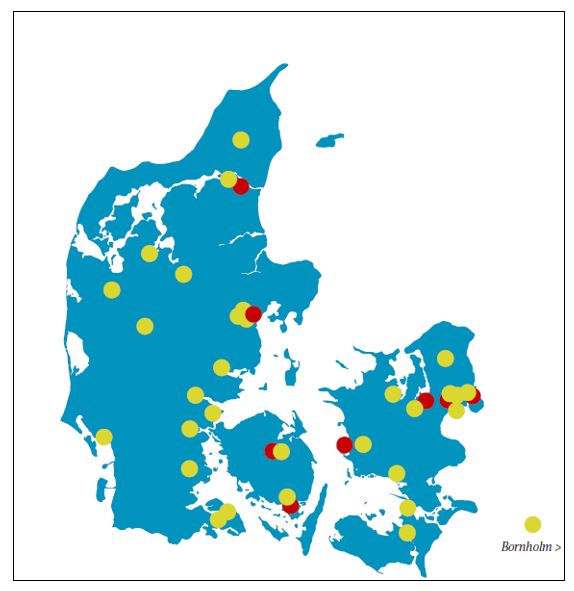The Challenge
Neuropathy in Parkinson disease: prevelance and determinants
Abstract:
Objective: To ascertain the prevalence and determinants of neuropathy in patients with Parkinson disease (PD), in particular, the roles of vitamin B12 and levodopa exposure.
Methods: We performed a cross-sectional study of 37 patients with PD and 37 age- and gender-matched controls, using a sensitive and validated neuropathy scale. The prevalence of neuropathy was determined and compared between groups. We then ascertained the role of vitamin B12 by a separate case-control analysis comparing numbers of patients in whom the neuropathy was directly attributable to vitamin B12 deficiency and comparing serum vitamin B12 levels in patients with PD with neuropathy with a second control group consisting of age- and gender-matched consecutive patients with neuropathy without PD. We also determined correlations between cumulative levodopa exposure, PD duration, neuropathy status and score, and vitamin B12 status and levels in all patients with PD and, specifically, in those with neuropathy.
Results: Fourteen of 37 (37.8%) patients with PD and 3 of 37 (8.1%) control subjects had neuropathy (p = 0.005), corresponding to an odds ratio (95% confidence interval) for neuropathy, of 6.9 (1.78-26.73). Vitamin B12 deficiency was a significantly more common cause of neuropathy (p = 0.024) and vitamin B12 levels were significantly lower (p = 0.002) in patients with PD with neuropathy than in age- and gender-matched consecutive control subjects with neuropathy without PD. Cumulative levodopa exposure correlated with PD duration (p = 0.001) and vitamin B12 levels (p = 0.044), in patients with PD with neuropathy.
Conclusions: Neuropathy is more prevalent in patients with PD than in control subjects. This may be predominantly due to vitamin B12 deficiency, which could relate to cumulative levodopa exposure in susceptible individuals. Vitamin B12 monitoring and supplementation, as well as serial clinical assessment for neuropathy, may be advisable in patients with PD.
Comment in
Neurology. 2011 Nov 29;77(22):1938-9
Comment by Peter van den Bergh

There is no obvious reason to suspect that peripheral neuropathy is a feature of idiopathic Parkinson’s disease (IPD). However, over the last few years evidence is accumulating that peripheral neuropathy may be more common in IDP patients than in patients with other neurological disorders and in healthy controls. It is postulated that the origin is iatrogenic and may be an adverse effect of levodopa treatment. Levodopa interferes with methyltetrahydrofolate pathways and increases consumption of S-adenosylmethionine (SAM), which results in increased homocysteine (Hcy) plasma levels. Vitamin B12 is essential for re-methylation of Hcy to methionine and SAM. As it also is a co-factor for succinyl-CoA isomerisation, vitamin B12 deficiency leads to methylmalonic acid (MMA) accumulation. Plasma concentrations of vitamin B12 may decline in IPD patients because of increasing methylation demands due to levodopa treatment (1). Therefore, levodopa-induced vitamin B12 deficiency can cause increased Hcy and MMA levels and lead to peripheral neuropathy (2).
Rajabally and Martey (3) provide further evidence for levodopa-related peripheral neuropathy in IPD by showing that the odds ratio for peripheral neuropathy is 6.9 when comparing 37 levodopa-treated IPD patients with 37 age-and sex-matched neurological control patients. At least half of the IPD patients with peripheral neuropathy (7/14) had low vitamin B12 levels as compared to less than 15% of peripheral neuropathy control patients (4/28). In IPD patients with peripheral neuropathy only, a significant correlation between disease duration, cumulative levodopa exposure, and vitamin B12 levels was found. This makes the authors hypothesize that this group of patients may be genetically predisposed to develop levodopa-induced vitamin B12 deficiency.
In the accompanying editorial, Tison and Le Masson (4) compare these results with those of an earlier case-control study by Toth et al. (5), who found a peripheral neuropathy prevalence of 55% in IDP patients (32/58) on levodopa. There was a significant correlation between peripheral neuropathy and duration of and cumulative exposure to levodopa. Vitamin B12 levels in plasma were similar, but fasting Hcy and MMA levels were higher. It is important to know that Hcy and MMA plasma levels are increased in as many as half of vitamin B12-deficient patients, who still have normal vitamin B12 levels (6).
Since to date there is no epidemiological evidence of an increased rate of peripheral neuropathy in IPD, Tison and Le Masson (4) emphasize the need for prospective, blinded, population-based epidemiological studies, including thorough clinical, electrophysiological, and biochemical testing, to confirm or refute the role of levodopa, vitamin B12, Hcy, and MMA in causing peripheral neuropathy in IDP. Indeed, other explanations may be concurrent peripheral nervous degeneration, inadequate dietary intake, or genetic defects, which, for example, might affect methyltetrahydrofolate reductase, the key enzyme for the re-methylation of Hcy to methionine (1)). As long as these studies have not been performed, recommended good clinical practice points are 1. to check not only vitamin B12 levels in IPD patients B12 but also Hcy and MMA levels, and 2. to substitute vitamin B12 if these levels are abnormal.(1) Toth C, Brown MS, Furtado S, Suchowersky O, Zochodne D. Neuropathy as a potential complication of levodopa use in Parkinson’s disease. Mov Disord 2008;23:1850-9
(2) (Saperstein DS, Barohn RJ. Peripheral neuropathy due to cobalamin deficiency. Curr Treat Options Neurol, 2002 ;4:197-201)
(3) (Rajabally YA, Martey J. Neuropathy in Parkinson disease. Prevalence and determinants. Neurology 2011;77:1947-50)
(4) Tison F, Le Masson G. Parkinson disease, L-dopa, and neuropathy. Did we miss something? Neurology 2011;77 :1938-9)
(5) Toth C, Breithaupt K, Ge S et al. Levodopa, methylmalonic acid and neuropathy in idiopathic Parkinson disease. Ann Neurol 2010;67:28-36)
(6) McCombe PA, McLeod JG. The peripheral neuropathy of vitamin B12 deficiency. J Neurol Sci 1984 ;66 :117-26)
Peter Van den Bergh is Professor of Neurology at the Catholic University of Louvain, Brussels, Belgium, Director of the Neuromuscular Reference Centre at the University Hospitals Saint-Luc and Chairman of the EFNS Scientist Panel on Neuropathies






